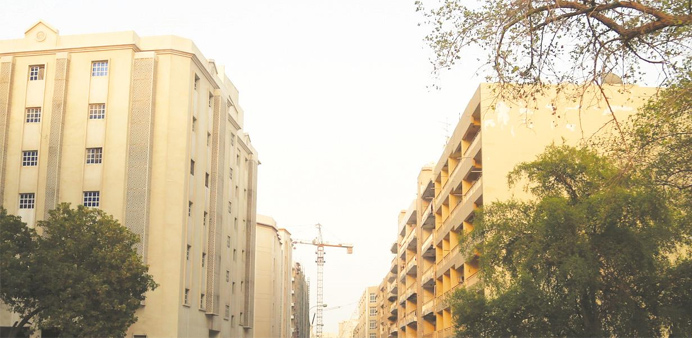Doha
The high rental rates in Qatar have caught the attention of several Advisory Council members, who wanted to discuss the issue at the Services and Public Utilities Committee, says the official Qatar News Agency (QNA) .
High rents, both commercial and residential, have often been cited as a hindrance to opening new businesses as well as a major concern for people who want to relocate or move to Qatar from other countries.
The Advisory Council’s Services and Public Utilities Committee met yesterday under its Rapporteur Saqr Fahd al-Meraikhi.
According to the QNA, "the committee resumed its examination of requests made by a number of Advisory Council members to discuss the large increase in rental prices".
Based on the deliberations, the committee agreed to invite HE the Minister of Development Planning and Statistics Dr Saleh bin Mohamed al-Nabit to attend the next meeting and offer the Ministry’s views on the topic.
Meanwhile, the Advisory Council held its regular weekly meeting of the 44th ordinary session under the chairmanship of HE the Deputy Speaker of the Council Issa bin Rabia al-Kuwari.
At the outset, HE the Secretary-General of the Advisory Council Fahad bin Mubarak al-Khayareen read out the agenda which was agreed upon. Then the Council endorsed the minutes of its previous session.
The Council took note of a memo by the Cabinet General Secretariat directed to the Ministry of Finance on the recommendations of the Cabinet on the state draft general budget for fiscal year 2016, and a draft bill to adopt the budget.
HH the Emir Sheikh Tamim bin Hamad al-Thani last week issued Law Number (26) of 2015, endorsing the State Budget for the fiscal 2016. The budget would take effect on January 1, 2016.
Qatar’s budget for 2016 has made higher allocation for major projects and a significant outlay for infrastructure, health and education sectors, as it projects a revenue of QR156bn and an expenditure of QR202.5bn.
The budget figures indicate that Qatar might post a deficit of QR46.5bn in 2016, which HE the Minister of Finance Ali Sherif al-Emadi said would be financed through “debt instruments” in the local and international markets.
The decline in projected revenues is due to a reduction in the oil price assumption to $48 a barrel compared with $65 in the previous fiscal year.

